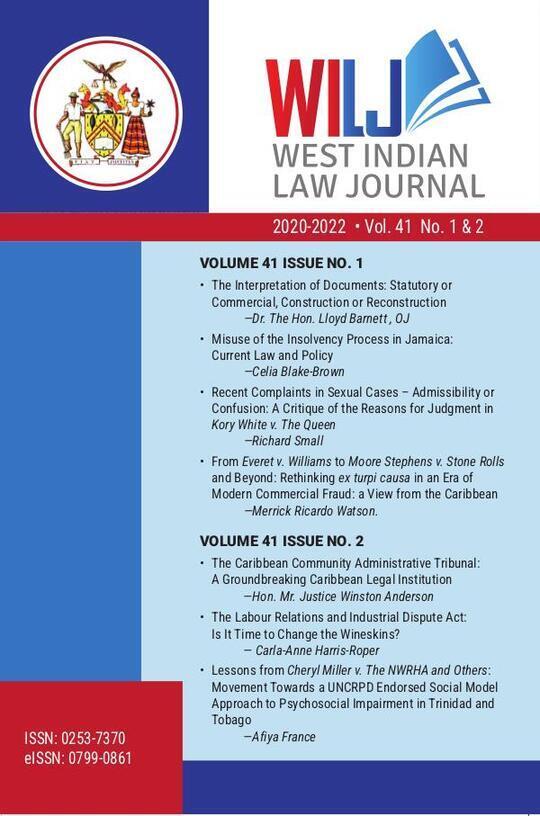
West Indian Law Journal Volume 41 No. 1 & 2
US$ 40.00
The publisher has enabled DRM protection, which means that you need to use the BookFusion iOS, Android or Web app to read this eBook. This eBook cannot be used outside of the BookFusion platform.
Description
Contents
Reviews
Language
English
ISBN
2370001762596
Editorial Board
About the Journal
The Interpretation of Documents: Statutory Or Commercial, Construction Or Reconstruction | by Dr. The Hon. Lloyd Barnett , OJ
Introduction
The Linguistic Challenge
The Historical Exposition
The Evolution and Influence of the Maxims and Canons of Construction
Bennion on Statutory Interpretation
The Doctrine in Heyon's Case
Parliamentary History
The Always Speaking Principle
The Taxing Statutes - A Deviation Corrected
Constitutional Construction
The Moorcock Doctrine
Restatement of the Principles
The Canadian Approach
An American Exposition
The Retreat from Investors Compensation
Revisison of the Restatement
The Caribbean Experience
Epilogue
Misuse of the Insolvency Process in Jamaica: Current Law and Policy | by Celia Blake-Brown
Introduction
Meaning of Misuse or Abuse of Process
The Remedies in the Context of Aims: The Apparent Tension
Exploiting An Noi Stay
Development Bank of Jamaica v. Proactive Financial Services15 (DBJ. v. PFS)
DBJ v. PFS in the Purpose Framework
Competing Aims: Finding the Equilibrium
Blocking Creditor Enforcement by Voluntary Bankruptcy: Sagicor Bank Jamaica LTD v. Taylor-Wright
Bankruptcy Policy
The Sagicor Decision in the Context of the Policy
Beyond Sagicor
Abuse of Process: Involuntary Bankruptcies
Conclusion
Recent Complaints in Sexual Cases – Admissibility or Confusion: A Critique of the Reasons for Judgment in Kory White v. The Queen | by Richard Small
Factual Background
The Nine Critical Questions Asked by the Prosecutor
Inadmissability of Previous Consistent Statements; Two Exceptions
The Principal Questions on Appeal
This Critque of the Privy Council's Ruling
Appellant's Submission to the Privy Council
The DPP and the Privy Council Agree
Trial Judge's Duty to Rule on the Admissibility of Evidence
The board rules that evidence of the mere fact that the complainant spoke to five people was admissible
The Soundness of the Board's Approach Questioned
Potential Dangers
It Will Be Impossible for the Defence to Counter this Inevitable Assumption by Any Effective
Cross Examination of the Complainant
Evidence of Multiple Complaints
Further Problems
What should the Jury be Told
The book hasn't received reviews yet.







